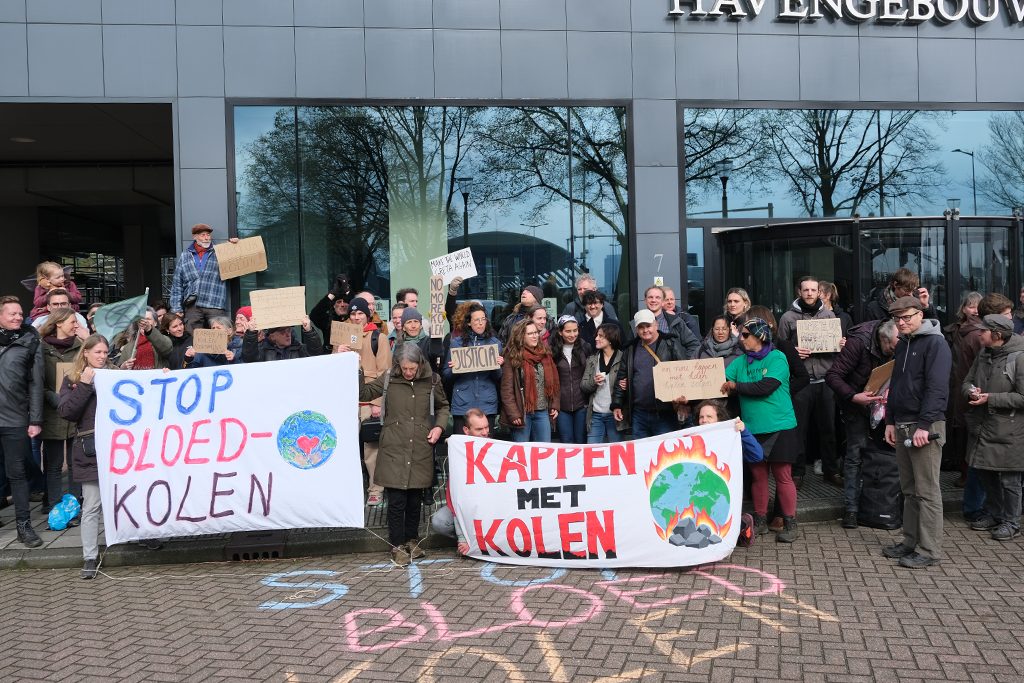The Amsterdam City Council decided this month to ban blood coal from the Amsterdam port. During a meeting of the Amsterdam City Council last Thursday, an extensive discussion took place on the continued storage and transhipment of blood coal from Colombia at the Amsterdam port. Since the war in Ukraine, Europe’s demand for coal to replace Russian fossil fuels has risen sharply. With this, the share of blood coal from Colombia has also risen sharply.
During the City Council debate, reference was made to studies of PAX and others. These studies show that coal mining in Colombia is associated with serious human rights violations. In April this year, Colombian victims of forced displacement in Cesar filed a complaint against several European energy multinationals (RWE, Uniper, Vattenfall, Engie) that until recently used or still use Colombian coal for energy production. The complaint, supported by SOMO and PAX, was filed at the National Contact Point (NCP) for the OECD Guidelines in The Hague and, apart from energy companies, also targets the ports of Rotterdam and Amsterdam, where the so-called “blood coal” was shipped to. In this complaint, the victims claim that although the companies and the ports have known about the violations for years, they, as major actors in the coal supply chain, have so far failed to take responsibility by effectively contributing to a solution to these abuses, as required by the international Responsible Business Conduct standards . The complaint received considerable attention in various media outlets (Dutch) this spring.
Stopping imports
For the Amsterdam city council, this complaint now seems to be cause for action, as at the end of city council meetings, three motions were adopted, submitted by Anke Bakker of the Party for the Animals, among others:
- Amsterdam municipality urges Port of Amsterdam to stop importing “blood coal” from Cesar, Colombia.
- Amsterdam municipality urges Amsterdam Port Authority to contribute to redressing human rights violations in Colombia.
- The Amsterdam municipality urges the Port of Amsterdam to revise its plan to phase out coal by 2030, so that a complete coal phase-out will take place sooner.

Takeover of terminals
As the municipality of Amsterdam is the sole owner of the Amsterdam Port Authority, the chances of the motions being carried out are considerable that coal imports will actually stop now. Moreover, two of Amsterdam’s three coal terminals were recently taken over by German transhipment company Rhenus, which, at the time of purchase, was aware of the port authority’s desire to be coal-free by 2030.
The efforts of PAX and SOMO, and the actions taken at the port of Amsterdam with the delegation of Colombian victims and our partners at Kappen met Kolen and Extinction Rebellion NL, certainly helped to get the issue on the city council’s agenda. This development sets a great precedent.




